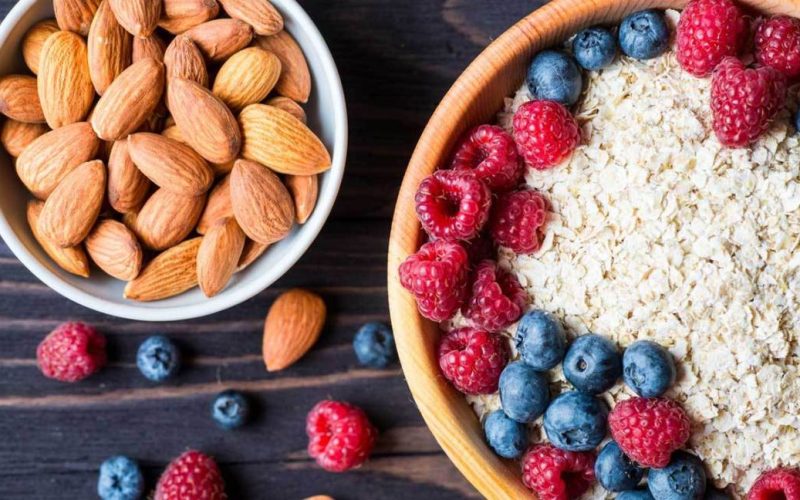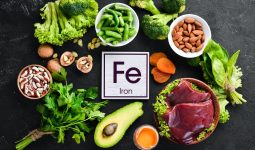Gout is another type of arthritis that can be caused by excess uric acid in the blood. Too much iron acid in the body can lead to a buildup of fluid in the joints, resulting in uric acid crystals.
Once the crystal is formed, the joints may swell causing inflammation and unbearable pain. Fortunately, gout can be managed and controlled.
Asides from medications, lifestyle and dietary changes are also effective in the prevention of painful gout attacks.
Causes of gout
Gout is caused as a result of excess uric acid present in the blood. This could be as a result of purine-rich diet, or when the body naturally produces too much uric acid.
In other cases, the level of uric acid in the blood may be normal, yet gout can still be diagnosed. This is caused by some inflammatory factors and the body expelling too much uric acid in urine.
Understanding purines
Purines are simply chemical compositions that are broken down when metabolized to form uric acid. They are either stored in he body through foods eaten or are typically made by the body.
Naturally, purines are broken down into uric acid, which then dissolved into the blood, and passed from the kidneys to the urine, that is then carried away from the body.
However, this isn’t the case when gout is present.
When the kidney doesn’t expel uric acid as urine fast enough, then complications may occur. Then the high amount of uric acid in the blood may cause what we know as “hyperuricemia ”
Although hyperuricemia isn’t classified as a disease, but can be considerably fatal if it forms uric acid crystals around the joints.
What foods needs to avoided?
A gout diet is specially designed to help manage the level of uric acid in the body, and improve overall health.
According to study by the American College of Rheumatology , a diet with the following foods in excess can cause gout due to their high prune content;
- Red meat
- Sugary beverages
- Seafood
A gout diet should also have little or none of the following foods;
- Beef
- Organ meats, like heart, brain, liver, intestine
- Pork
- Mackerel and tuna
- Lamb
- Mussels and scallops
- Beer, liquor, and wine
- Yeast
- Soda
- Fruit juices
Only moderate amount is needed if animal protein has to be in your diet. It’s recommended that avoid consuming large portions of meat rich in purine.
A typical serving of fish is 4 ounces and meat is 3 ounces. But then again, gout-friendly meal plans either contain none of the listed animal proteins or have them in very little amounts that only cover for 1 to 2 servings daily or may even include days without meat.
How people with gout are affected by animal proteins?
Animal protein have excess purine in them. Eating too much of animal protein can elevate the level of uric acid, leading to gout in the body. This is why it is best to minimize or completely avoid these foods.
The following foods are high in purines and need to be consumed in moderation;
- Mutton
- Grouse
- Goose
- Partridge
- Haddock
- Pheasant
How people with gout are affected by alcohol?
Alcohol interferes with the removal of uric acid from the body. The level of purine in alcohol and beverages leads to this interference.
Commonly, purines usually break down to form uric acid that get flushed out of the body when we urinate.
However, when uric acid goes beyond normal, the breakdown process is interrupted, causing crystals to form in the joints. This ultimately develops into gout.
It is advisable to stick to the following to prevent further gout attacks;
- Ensure to avoid alcohol when there is a gout attack.
- Reduce the consumption of wine.
- Stay away from beer.
Bear in mind that it is best to stay away from alcohol altogether, unless your doctor gives the go ahead to drink it.
How people with gout are affected by sugar?
The body’s uric acid level can be affected by a high intake of fructose and sugary foods. This is because of the high amount of calories the sugar contains, and it’s been connected to obesity, a recognized risk for people with gout.
Again, even though beverages rich in fructose don’t have high amounts of purine, they have been known to increase the risk of gout development.
You can flush out uric acid from the body by cutting soda and soft drink consumption and improving on your daily water intake. This helps prevents the formation of kidney stones in the body.
It is healthier to stick to gout-friendly meal plan and that would include the low-fat diary and plant-based proteins products.
Plant proteins
Legumes and beans are very good sources of protein. They can help you with the protein the body needs, as you cut out saturated fats.
Dairy and non-dairy products
It is important to discuss with your dietitian for best gout-diet plan, especially since some people have experienced an increase in gout symptoms, while others reported a decrease in the level of uric acid when they stick to low-fat dairy foods.
Fruits and vegetables
Some vitamin C-rich foods, such as oranges, guavas and cherries, have shown evidence of significantly minimizing gout attacks.
Surprisingly, no study has shown high-purine vegetables in maximizing gout attacks. More-so, vegetables are fiber-rich foods and low in calories, which can help in controlling your weight.
However, it is important to be mindful of the intake of iron as it is may be helpful for people with gout. Most sources of irons are found in meat, but plan plant-based iron foods can negatively affect gout.
It is also vital that attention is given to symptoms, so as to help modify and plan your diet to best meet your health needs.
Is gout-diet a treatment for gout?
It’s important to note that a gout diet is not a treatment but a lifestyle change that is designed to help minimize or eliminate gout-related symptoms.
In addition, your doctor may likely suggest regular exercise and weight loss plan. This is to help manage gout more effectively than a low-purine diet can.
Unlike other types of arthritis, gout is curable. Depending on individual factors, treatment may differ, and these factors include;
- Age
- Overall health
- Medical history
- How severe the condition is
Severe gout attacks can be controlled with proper gout diet, in addition to prescriptions, a healthy lifestyle, exercises, weight management, and steady attention to signs and symptoms.
Do you experience gout attacks? How have you been treating it? Share your experiences with us in the comments.







